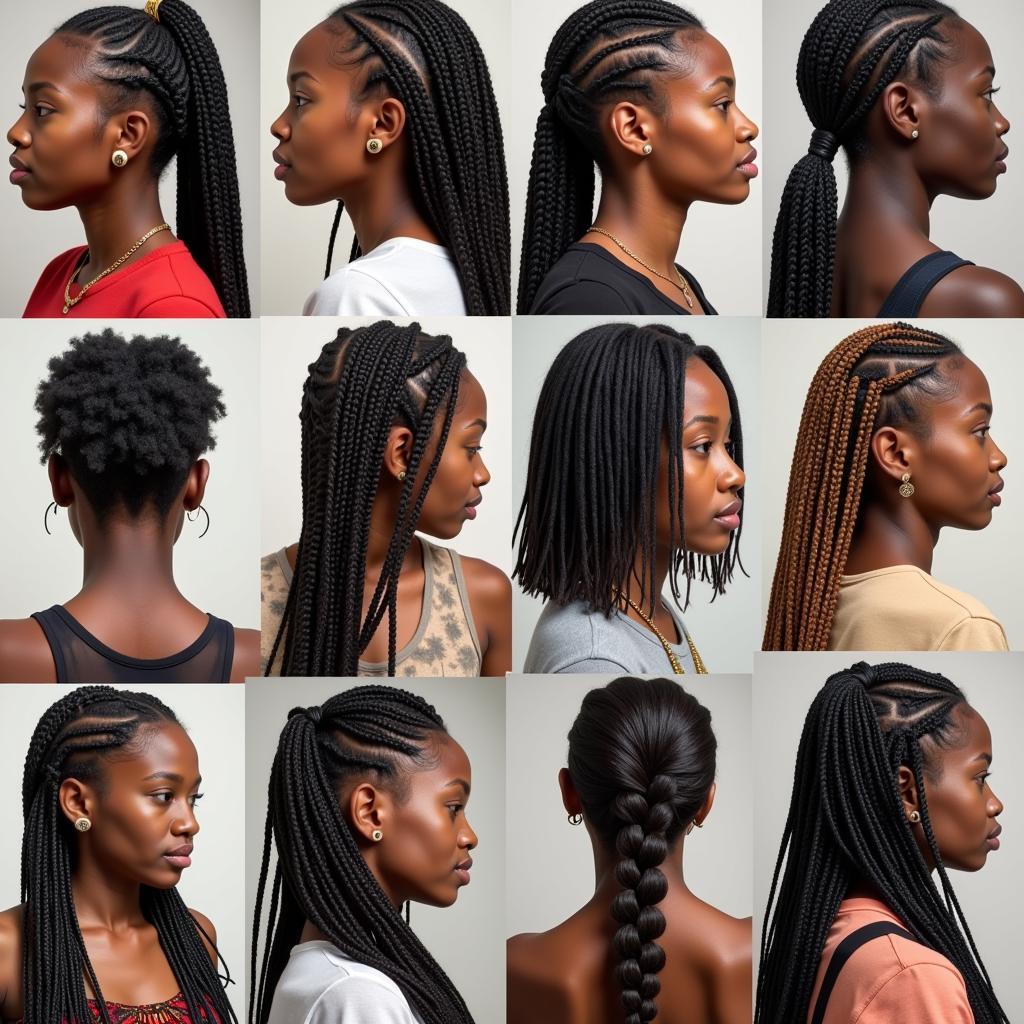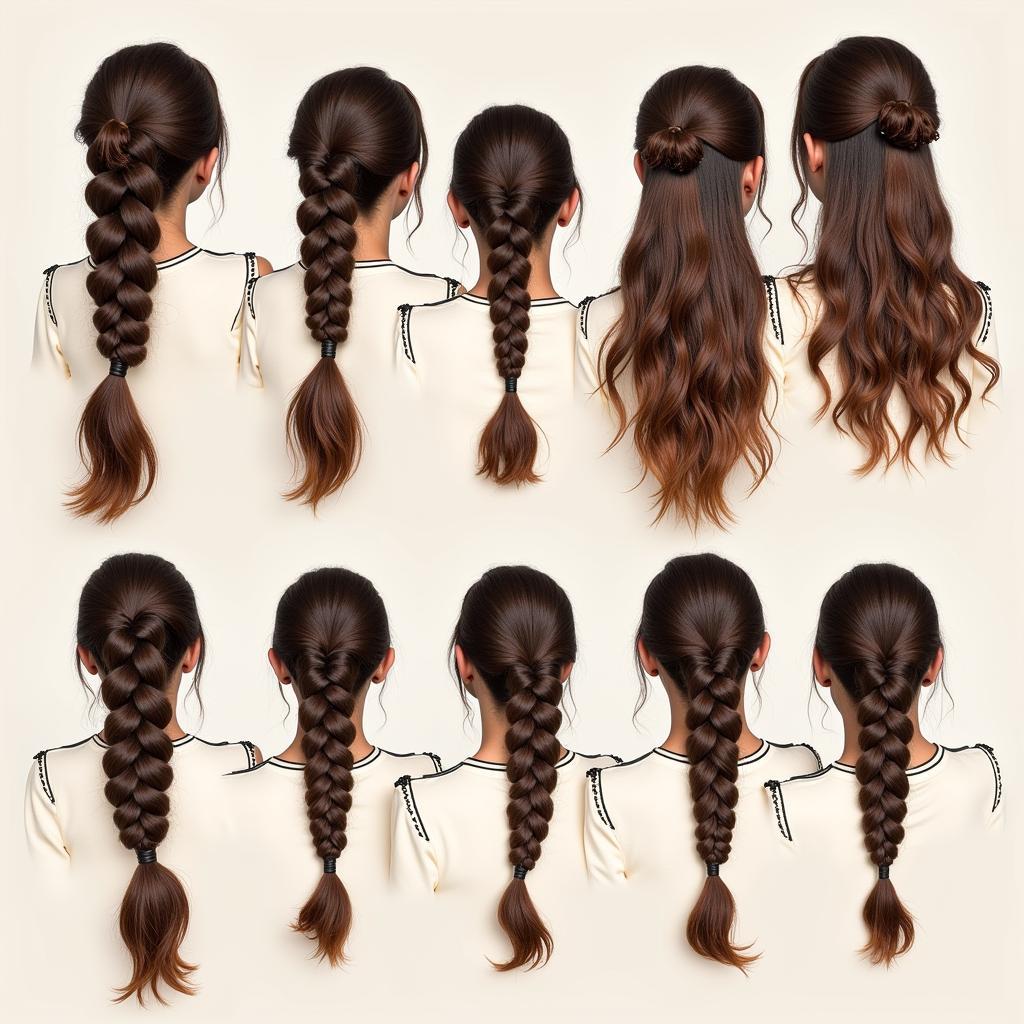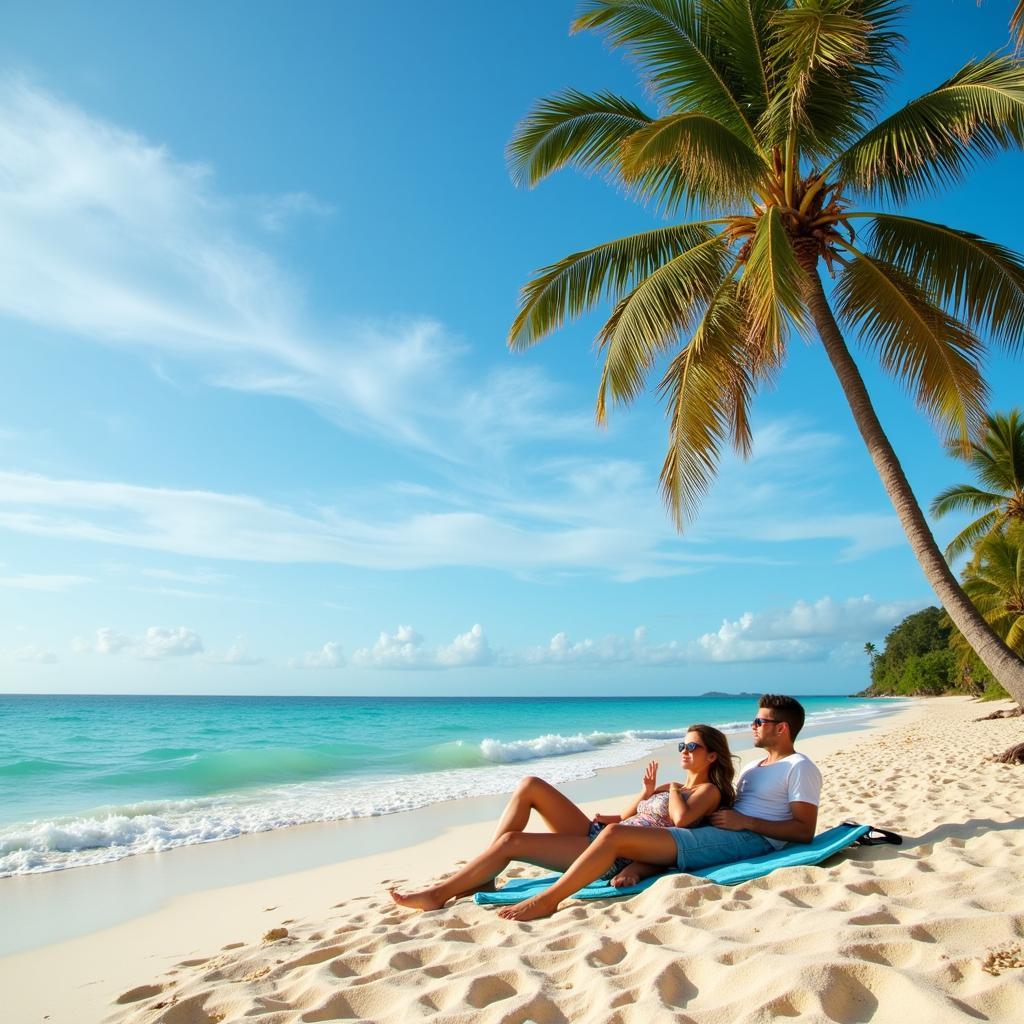A Deep Dive into African American Braids
African American Braids are more than just a hairstyle; they’re a rich tapestry woven with threads of history, culture, and self-expression. From intricate cornrows to flowing box braids, these styles offer a versatile and stunning way to celebrate natural hair. This article explores the fascinating world of African American braids, delving into their significance, diverse styles, and practical tips for maintenance.
 A collage showcasing the historical evolution of African American braid styles, from ancient times to modern interpretations.
A collage showcasing the historical evolution of African American braid styles, from ancient times to modern interpretations.
For centuries, braiding has been an integral part of African culture, serving as a form of communication, social status, and artistic expression. These traditions were carried across the Atlantic during the transatlantic slave trade, where braiding became a way for enslaved Africans to maintain a connection to their heritage and express their identity in a new and challenging environment. Over time, African American braiding evolved, adapting to new influences and developing unique styles that reflect the resilience and creativity of the community. Today, African American braids continue to hold deep cultural significance, symbolizing pride, heritage, and a celebration of natural beauty.
Exploring Popular African American Braids Styles
From classic cornrows to trendy goddess braids, the world of African American braids offers a dazzling array of choices. Each style carries its own unique aesthetic and can be adapted to suit individual preferences and hair textures.
- Cornrows: These tightly woven braids lie close to the scalp, creating intricate patterns and designs. They are a versatile foundation for various updos and protective styles.
- Box Braids: Known for their squared-off shape, box braids offer a stylish and low-maintenance option. african american hair extensions braids can be added to achieve desired length and volume.
- Senegalese Twists: These two-strand twists create a rope-like texture and offer a softer, more flowing look compared to braids.
- Crochet Braids: These pre-looped braids are installed using a crochet hook, offering a quick and versatile way to achieve various styles.
- Goddess Braids: A thicker, more elaborate version of cornrows, goddess braids exude elegance and sophistication.
 A collection of images showcasing different popular African American braids styles, including cornrows, box braids, Senegalese twists, crochet braids, and goddess braids.
A collection of images showcasing different popular African American braids styles, including cornrows, box braids, Senegalese twists, crochet braids, and goddess braids.
Maintaining Healthy African American Braids
Proper care and maintenance are essential for preserving the health and longevity of your African American braids.
- Regular Moisturizing: Keep your scalp and braids hydrated by using a light oil or braid spray.
- Protective Styling at Night: Wrap your braids in a satin scarf or bonnet at night to prevent friction and breakage.
- Gentle Cleansing: Wash your braids every 2-4 weeks with a gentle, sulfate-free shampoo, focusing on the scalp.
- Avoid Over-Styling: Refrain from excessively pulling or manipulating your braids, as this can lead to hair breakage and scalp irritation.
What are some good African American braids for thin hair?
african american braids for thin hair can be a great protective style. Consider smaller braids or twists to minimize stress on the hair.
How do I style African American braids for a formal event?
Elegant updos and intricate braided designs are perfect for formal occasions. Consider adding hair jewelry or accessories to elevate the look.
“Braids are a powerful form of self-expression and a celebration of our heritage,” says renowned hair stylist, Anika Olajide. “They allow us to embrace our natural texture while showcasing endless creativity.”
What were some popular African American braids hairstyles in 2018?
african american braids hairstyles 2018 included styles like feed-in braids and lemonade braids.
“Braiding is not just about hair; it’s about connecting with our roots and empowering ourselves through creativity,” adds Dr. Zara Kambon, a cultural historian specializing in African diaspora traditions. african american french roll braids can be a chic and sophisticated option.
Are there specific braids for African American toddlers?
african american toddler braids should be age-appropriate and gentle on their delicate hair. Simple styles like cornrows or beads are often good choices.
In conclusion, African American braids offer a beautiful and versatile way to celebrate natural hair while honoring a rich cultural heritage. From protective styling to artistic expression, these intricate designs empower individuals to embrace their unique beauty and connect with a legacy of resilience and creativity.
FAQ
- How long do African American braids typically last? This varies depending on the style and maintenance, but they can generally last anywhere from 2 to 8 weeks.
- Can I swim with African American braids? Yes, but it’s essential to dry them thoroughly afterward to prevent mildew and scalp irritation.
- How often should I wash my African American braids? Washing every 2-4 weeks is generally recommended.
- Can African American braids damage my hair? If installed and maintained correctly, braids can actually protect hair and promote growth.
- How do I choose the right braid style for my hair type? Consult with a professional stylist who can assess your hair texture and recommend suitable styles.
- Can I style my braids in different ways? Absolutely! Braids offer a versatile base for various updos, ponytails, and other creative styles.
- What are some common mistakes to avoid when getting African American braids? Avoid braiding too tightly, neglecting your scalp, and using harsh chemicals.
Need support? Contact us at +255768904061, [email protected], or visit us at Mbarali DC Mawindi, Kangaga, Tanzania. Our customer care team is available 24/7.


